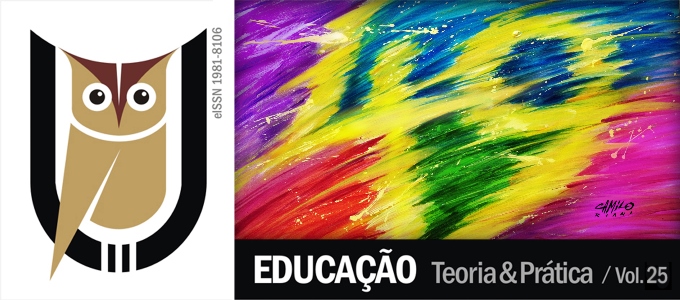Schoolar inclusion in Araras: conditions and prospects
DOI:
https://doi.org/10.18675/1981-8106.vol25.n49.p340-356Keywords:
Scholar Inclusion, Special Needs Education, Special Education.Abstract
This study seeks the understanding of the conditions and prospects of inclusion in schools of Araras, based on the reports of teachers, managers and students of Pibid. The collect of the data was performed by the application of questionnaires and semi-structured interviews, seeking the understanding of the concepts of educational agents in connection with the inclusive process, and how these concepts influence their pedagogical practices. The study relied on the qualitative approach to research in education. The search for understanding the local reality is of great importance to guide the actions and educational practices that can collaborate in the inclusive process, seeking the construction of a democratic school. It was found that teacher formation is still a nodal point in the effectuation of inclusive process, and that the conceptions and educational practices point to the non accountability of professor by pedagogical activities with students with special educational needs. Finally, it was found that the Pibid can be a potential space for discussions and reflections on the actions and concepts inclusive.Downloads
Additional Files
Published
How to Cite
Issue
Section
License
Authors who publish in this journal agree to the following terms:
a) Authors assign copyright to the journal, with the work simultaneously licensed under the Creative Commons Attribution License that allows sharing of the work with acknowledgment of authorship and publication in this journal.
b) The policy adopted by the Editorial Committee is to assign copyright only after a period of 30 months from the date of publication of the article. After this time, authors interested in publishing the same text in another work must send a letter to the Editorial Committee requesting the release of the assignment of copyright and wait for a response.
c) This journal provides public access to all its content, since this allows greater visibility and reach of published articles and reviews. For more information on this approach, visit the Public Knowledge Project, a project that developed this system to improve the academic and public quality of research, by distributing OJS as well as other software to support the public access publication system to academic sources. The names and email addresses on this website will be used exclusively for the purposes of the journal and will not be available for other purposes. This journal provides open any other party  This work is licensed under a Creative Commons License
This work is licensed under a Creative Commons License











